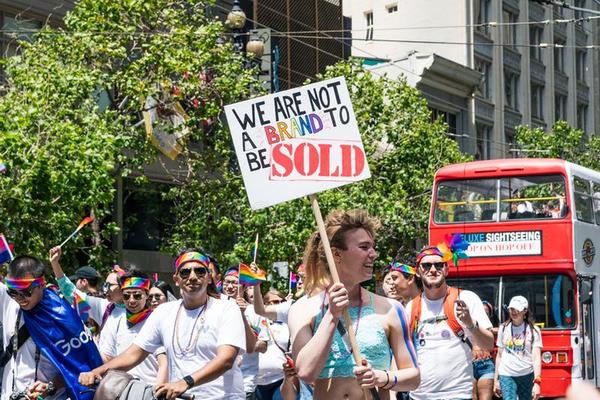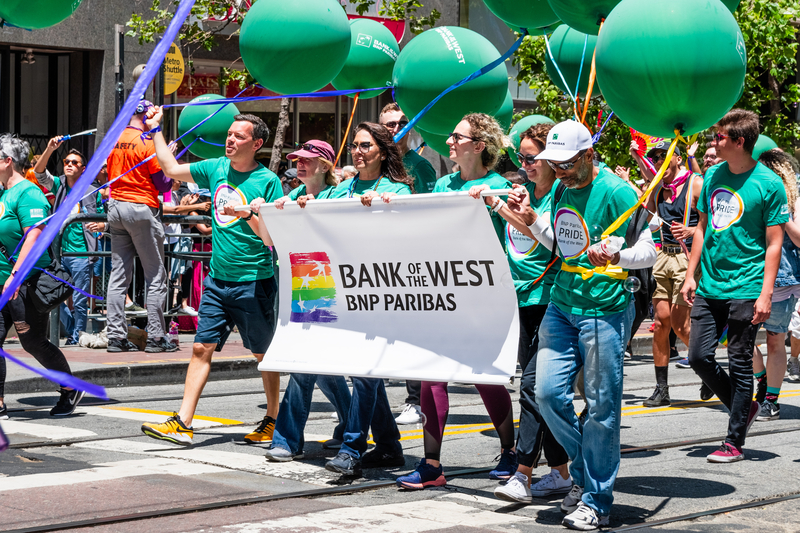
Bisexual, homosexual, bisexual, and transgender (LGBT) individuals experience harassment and discrimination at work at much higher prices than direct, cisgender employees. In 2016 alone, over 25 percent of LGBT employees reported experiencing discrimination on the job, along with an astonishing 80 percent of transgender employees experienced discrimination or knowingly took steps to prevent it.
And with all the Equality Act languishing in the Senate, there's absolutely no explicit national protection against discrimination due to sexual orientation or transgender status.
Collectively, we represent a varied and intersectional coalition of employees' rights, legal services, and allied associations representing LGBTQ low-wage employees, immigrants, people of color, elderly individuals, and individuals with disabilities.
In our brief, we explain the pervasive workplace harassment and discrimination which LGBTQ individuals experience due to their sexual orientation and gender equality, such as how rates of harassment and discrimination increase for LGBTQ men and women who work in low-wage businesses, are elderly employees, belong to communities of color, or are individuals with disabilities.
The LGBTQ community requires transparent office protections, however, the present state of the legislation is hard, unpredictable, and unworkable for courts and employees. The 3 cases before the Court exemplify the issue. Faced with similar situations, the Eleventh Circuit at Bostockalong with also the Second Circuit at Zardaappeared regarding whether discriminated against a bisexual, homosexual, or bisexual employee is a kind of unlawful sex discrimination arising from the belief that individuals ought to be drawn to members of the opposite sex while individuals with same-sex fascination violate sex stereotypes.

We assert that the Court should explain that"gender," as defined under national law, includes sexual orientation. If it doesn't, courts and employees will be forced to participate in"lexical bean counting," since the Zarda court explained, the hopeless job of counting up episodes of harassment and discrimination based on gender in comparison with sexual orientation to determine which ends. Courts struggle for this investigation in many regions of the nation and have clarified it as"illogical," unworkable," and"random" Additionally, these instances and lots of others show that workplace discrimination frequently does not fit tidily into a single category or another. Imposing this artificial distinction restricts the capability of lesbian, gay, and bisexual employees to present their complete encounters of workplace discrimination since they attempt to thread the needle of demonstrating sex discrimination, as different from discrimination based on sexual orientation.
Our brief urges the Court to specify a similar uniform and predictable standard for sexual orientation discrimination because the substantial majority of national courts have completed for gender identity discrimination. As a consequence of the clarity with this matter, courts confronted with claims of sex identity discrimination prevent the"lexical bean counting" and think about claims of gender identity discrimination as they perform discrimination according to any other protected characteristic.
LGBTQ employees are entitled to the full protection of the state's laws. If the Supreme Court rules that Title VII doesn't prohibit discrimination based on sexual orientation and gender equality, it is going to produce an arbitrary and debilitating carve-out into the landmark civil rights legislation, leaving LGBTQ employees vulnerable to harassment and discrimination at work.
The questions presented in such instances talk straight to workplace discrimination. As associations that fight poverty and discrimination.
As a part of its job, SPLC has served as adviser for lesbian, bisexual, gay, or transgender ("LGBT") persons claiming their civil or constitutional rights and has registered several briefs in this Court and the courts of appeals.
CDF champions programs and policies which raise children out of poverty, and shield them from neglect and abuse and ensure that their access to healthcare, quality education, and also a moral and religious base. CDF urges nationally on behalf of children to make sure kids are a priority, devoting special attention to the needs of poor children, children of color, and people with disabilities.
EPI strives to safeguard and enhance the financial conditions of working people. EPI is worried that all workers enjoy the full protections of labor and employment legislation. As a part of its job, EPI has participated as amicus curiae in a lot of cases involving employees' rights and economic justice.
Consistent with these policy announcements, NASW supports the adoption of state, local, national, and global policies and laws that prohibit all forms of discrimination based on sexual orientation.
The National Center for Law and Economic Justice has years of experience litigating in federal and state courts nationwide to safeguard and promote the financial security of low-income households and people, and as part of the advocacy has functioned to safeguard access to the courts for all these individuals.
It works concentrates on the government's role in producing and remedying patterns of structural racism, particularly the causes and effects of economic and racial segregation. PRRAC attempts to comprehend and handle the long-term consequences of these policies for low-income households of color, particularly across generations.
With 45 decades of expertise in the specialty, 9to5 proceeds to advocate for equality in the intersections of gender, class, and racial and cultural justice. 9to5 works on topics that are directly affected by our membership. 9t5's members are working girls, men, and people who recognize as gender-nonconforming-- across gender, class, racial and cultural divides. 9to5's work would be to end discrimination at work and outside, and also to acquire great jobs for the previously incarcerated, higher salaries and equal pay, work/family policies, child care, and other income and work supports, and also to progress the growing move toward a more equitable society.
As national associations with significant experience in safeguarding discriminatory practices which induce poverty, in addition to racial and gender inequality, and who see firsthand the devastating effects that poverty has on communities and families, have got a critical insight into the real-world results of the legal issues pending before this election. This short shares that experience and insight with the Court. Specifically, this brief focuses on the damaging impact of employment discrimination against LGBT individuals --notably LGBT girls, people of color, and people in small, rural areas --and its effect on these people, their families, and the community at large.
While this Court has explained, discrimination in employment based on gender is an "evil" that Title VII prohibits. That discrimination may take several forms and is actionable provided that an employee can demonstrate that the discrimination was"due to [a person's ] sex" at 80. The workers in such instances have clarified why LGBT discrimination is a kind of discrimination" because of sex" Id. This short article will describe is how silent and far-reaching that"bad" actually is. LGBT men and women experience sex-based discrimination at work at discounted prices. This discrimination ranges from being refused a project to enduring daily insults. Along with the discrimination is very pronounced for LGBT girls and people of color. Such discrimination can be an injury in and of itself. But office discrimination against LGBT individuals contributes to a cascade of different injuries.
Without legal protection against discrimination, and LGBT individuals could become jobless, or even completely unemployable, in several communities and industries. Such unemployment, in turn, negatively impacts access to housing and healthcare, in addition to this individual's health. And LGBT men and women aren't the only sufferers. Joblessness raises the demand for government aid programs and reduces general economic output. These injuries aren't evenly distributed; LGBT girls and people of color are severely hurt.
Discrimination, moreover, takes its toll when the LGBT individual remains employed. Hostile and abusive offices are equally commonplace and especially harmful for LGBT individuals. The anxiety of having to survive this kind of environment, paired together with the anxiety of adverse employment activities (which could cause unemployment), frequently forces LGBT individuals to hide their identities. In turn, it has a substantial effect on their psychological wellbeing and productivity on the job. The choice to hide one's identity to get or maintain a job also compels some LGBT individuals to confront an unconscionable decision: if they exude a household or associations to prevent detection? These injuries are especially severe in smaller towns, in which community and work-life aren't readily segregated. For countless LGBT individuals, the absence of defense from sex-based discrimination may induce them to reside in a perpetual state of secrecy.
Discrimination against LGBT people pervades and injuries the country.
